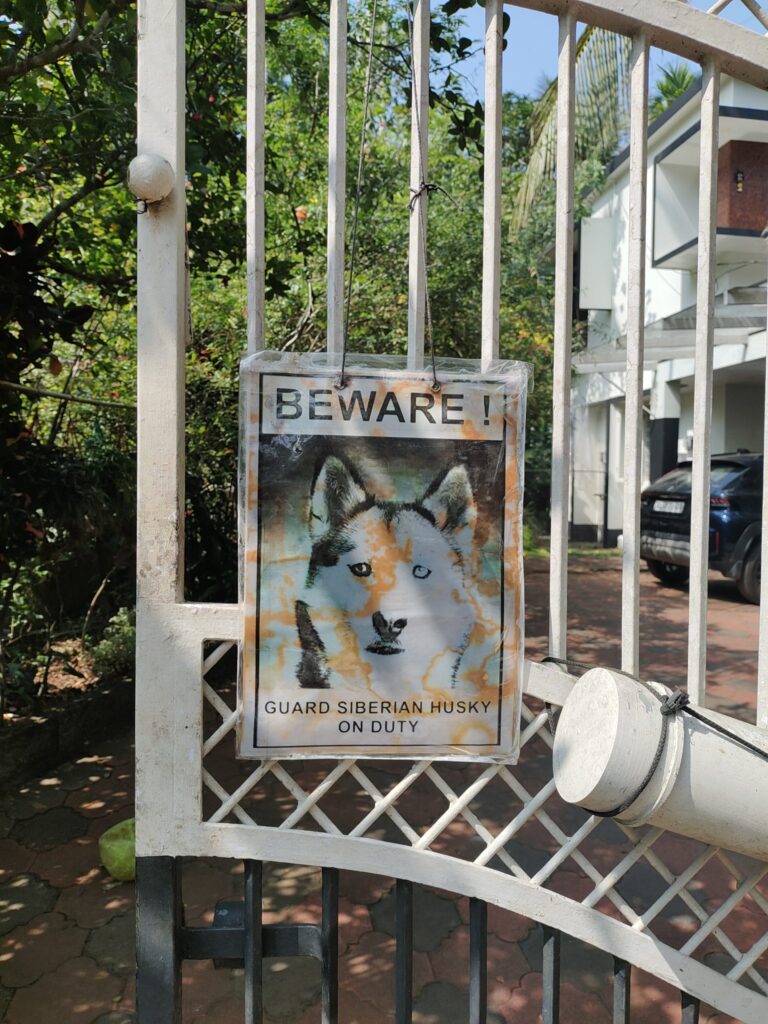The traditional image of the farmer, often associated with working the land and raising livestock in a family setting, has changed considerably. Today, agriculture covers a much more diverse and complex economic reality. From energy production to tourism, the facets of this sector have multiplied. This diversification raises a fundamental question: what legally defines an agricultural activity? The answer is not just theoretical, but has very real consequences for farmers in terms of legal status, social security arrangements and taxation.
The purpose of this article is to shed light on the legal definition of agricultural activity in France. We will examine the essential criteria laid down by law, in particular the notion of biological cycle, as well as the activities considered to be agricultural by extension. We will also look at specific cases that illustrate the sometimes subtle contours of this qualification and its practical implications. For a broader understanding of the legal environment, discover the global legal framework for agriculture.
The fundamental criterion: mastery of a biological cycle
The core of the legal definition of agricultural activity can be found in article L. 311-1 of the French Rural and Maritime Fishing Code. This text, the result of a 1988 law that clarified decades of hesitations in case law, sets out a central criterion: the following are deemed to be agricultural activities "all activities corresponding to the control and exploitation of a biological cycle of a plant or animal nature and constituting one or more stages necessary for the unfolding of this cycle"..
What does that mean? Let's take a closer look. The "biological cycle" refers to the natural process of life: birth, growth, reproduction and production for animals; sowing, growth, flowering, fruiting and harvesting for plants. The idea is to cover all the stages in the life of a plant or animal. Growing wheat, raising cattle for their milk or meat, growing fruit trees - these are all clearly part of managing a biological cycle.
The term "control" is just as important. It implies active human intervention, directing the natural process. It's not just a matter of picking wild fruit or hunting. The farmer intervenes to guide, protect and improve production. He prepares the soil, sows, looks after his animals, feeds them and organises their reproduction. This control distinguishes farming from the simple passive exploitation of natural resources. It is this reasoned human intervention that justifies the status.
This modern definition marked a break with previous approaches. Historically, agriculture was often linked to land ownership or the "natural" character of the end product. The 1988 law went beyond these criteria. It makes no difference whether the farmer owns, rents or simply occupies the land. Nor does it matter how sophisticated the techniques employed are. What matters is effective control of a living process, whether plant or animal.
Agricultural activities by attachment: extension and support
The legal definition does not stop at the strict biological cycle. The same article L. 311-1 of the Rural Code specifies that the following are also deemed agricultural "activities carried out by a farmer which are an extension of the act of production or which are based on the farm".. This extension is vital because it allows us to incorporate many of the diversification activities that have become commonplace.
Activities "in the extension of the act of production" mainly refer to the processing and marketing of products from the farm itself. For example, a winegrower who vinifies his grapes and sells his wine directly from the property is carrying out an agricultural activity from start to finish. Similarly, a livestock farmer who processes his milk into cheese or yoghurt, or a farmer who packages and sells his vegetables at a local market, remain within the agricultural framework. The essential condition here is that these activities mainly involve products from the farmer's own farm. If a winegrower buys grapes on a massive scale from others in order to make wine, there is a risk that the trading activity will become predominant and fall within the commercial sphere.
Activities "supported by the farm" refer to the use of the farm's resources and infrastructure for services other than primary production. A typical example is agri-tourism: offering bed and breakfast accommodation in a farm building, organising educational tours, opening a farmhouse inn using farm produce. Here again, the link with the main farming activity is decisive. Case law has ruled that the simple letting of gîtes or rooms on a rural property, if disconnected from an actual agricultural production activity on the premises, cannot be classified as agricultural. The guest activity must be genuinely based on an active farm.
This twofold extension enables the law to recognise the modern economic reality of farms, which often seek to add value to their production or assets through complementary activities, without losing their status as farmers.
The civil nature of agricultural activity and its consequences
The clearest statement in article L. 311-1 of the French Rural Code is its conclusion: "The agricultural activities thus defined are of a civil nature".. This civil status is the fundamental principle that distinguishes agriculture from trade and craft.
What are the practical implications of this civil nature? The first and historically most important consequence concerns jurisdiction. Disputes involving a farmer in the course of his business are in principle dealt with by the civil courts (Tribunal Judiciaire) and not the commercial courts. This rule has its origins in the Commercial Code of 1807 (formerly article 638, now article L. 721-6 of the Commercial Code), which excluded actions against a farmer for the sale of his own produce from commercial jurisdiction. Even though insolvency proceedings have been adapted (we will come back to this in another article), the farmer's natural judge remains the civil court.
Secondly, as a civil actor, the farmer does not have the status of a trader. They are therefore not subject to the specific obligations of merchants, such as being registered with the Registre du Commerce et des Sociétés (RCS) for their agricultural activity (although there is a Register of Agricultural Assets which we will also discuss) or keeping strict commercial accounts in accordance with the French Commercial Code. This civil nature is also a key factor in choosing the legal form of your businessWhether they are companies or cooperatives.
Finally, the civil nature of the business has significant tax implications, even though agricultural taxation has its own complex rules which are not the subject of this article. The general idea remains that the activity is not treated as commercial profit but as agricultural profit, with specific tax regimes.
This asserted civil nature aims to protect agriculture and recognise its specificity, even if, as we shall see, the boundary with other sectors can sometimes seem porous.
Specific cases provided for by law or case law
In addition to general principles, the law and the courts have had to clarify the status of many specific activities, either to bring them clearly within the agricultural sphere or to distinguish them from it.
Breeding
For a long time a source of hesitation, particularly when the farmer bought a large part of the feed for his animals, case law now considers livestock farming to be an agricultural activity by its very nature, as long as an animal's biological cycle is controlled. The fact that feed is purchased, even in its entirety, no longer makes the activity a commercial one, contrary to an older approach.
Marine farming
The law of 18 November 1997 explicitly links marine farming activities (oyster farming, mussel farming, fish farming, etc.) to agriculture. This confirms their civil nature, "notwithstanding the social status of those who practise them".This clearly demonstrates their desire to clarify their position.
Equestrian activities
The law of 23 February 2005 also includes "activities involving the preparation and training of domestic equidae with a view to their exploitation". in the agricultural sector. Entertainment activities are excluded. This classification may have raised practical questions, particularly for leases of facilities (riding schools) which could be commercial leases and which, if renewed after the law, could potentially fall under the more protective status (for the lessee) of rural leases. Conversely, a court ruling has confirmed that the simple activity of looking after horses, without controlling a breeding or training cycle, is not agricultural and does not justify reclassifying a commercial lease as a rural lease.
Energy production
Reflecting the new diversifications, the law of 27 July 2010 stipulates that the production and marketing of biogas, electricity and heat by methanisation are considered as agricultural, but under one important condition: that at least 50% of this production must come from materials originating from the farms concerned. This is a clear example of an ancillary activity linked to agriculture under certain conditions.
Agri-tourism
As mentioned above, hospitality activities (gîtes, bed and breakfast, farm camping, farm inns) are agricultural if they are supported by the farm and use its resources. The link must be real and the main agricultural activity must exist.
Gardening and nurseries
The situation is more nuanced. Nurserymen who simply buy seedlings to resell quickly, without ensuring a significant phase in the growth cycle, are often considered by the courts to be carrying on a commercial activity of purchase and resale. On the other hand, those who produce their own plants from seedlings or cuttings are in full control of a biological cycle. In the case of gardening (creation and maintenance of green spaces), the activity is generally considered to be commercial or small-scale, because it does not involve mastering an agricultural production cycle. However, from a social point of view, these businesses are often covered by the Mutualité Sociale Agricole.
Atypical ancillary activities
The legislator has sometimes extended the definition for practical reasons. The example of farmers clearing snow from communal or departmental roads with their own tractor equipped with a blade supplied by the local authority (1999 law) illustrates a very specific extension, probably motivated by rural development considerations.
Agriculture and social law: a specific system
It is important to note one final subtlety: the definition of agricultural activity for the purposes of membership of the social protection scheme for farmers (the Mutualité Sociale Agricole - MSA) is not exactly superimposed on the civil definition in Article L. 311-1.
Articles L. 722-1 (for non-salaried workers) and L. 722-20 (for salaried workers) of the French Rural Code list the activities that require affiliation to the MSA. This list is broader than the civil definition. It includes, for example, agricultural and forestry work companies, rural craftsmen under certain conditions, gardening companies, gamekeepers, fishery wardens, staff of professional agricultural bodies (trade unions, chambers of agriculture, cooperatives, agricultural credit, MSA, etc.), and even teachers at private agricultural teaching establishments.
Recent case law has also confirmed that the chairmen and managers of simplified joint stock companies (SAS) carrying out an agricultural activity within the meaning of Article L. 722-1 are covered by the agricultural social security scheme.
This extension of the scope of social protection shows that while the core of agricultural activity remains defined by the biological cycle and its direct extension, the legislator has chosen to encompass a wider range of activities linked to the rural and agricultural world within its social protection system.
When all is said and done, determining whether an activity is legally agricultural requires a case-by-case analysis, examining whether the legal criteria are met and taking account of the clarifications made for certain specific sectors. Once this qualification has been established, it is essential to master specific legal tools to manage and protect their business.
If you are wondering about the legal status of your business or diversification projects, don't hesitate to contact us to discuss your specific situation.
Sources
- Code rural et de la pêche maritime: in particular articles L. 311-1, L. 722-1, L. 722-20
- French Commercial Code: in particular article L. 721-6
- Law no. 88-1202 of 30 December 1988 on adapting farms to their economic and social environment
- Law no. 97-1051 of 18 November 1997 on maritime fishing and marine cultures
- Law no. 2005-157 of 23 February 2005 on the development of rural areas
- Law no. 2010-874 of 27 July 2010 on the modernisation of agriculture and fisheries




